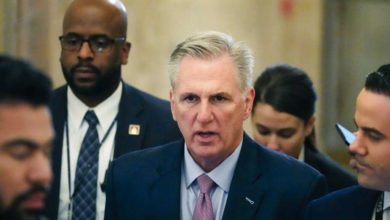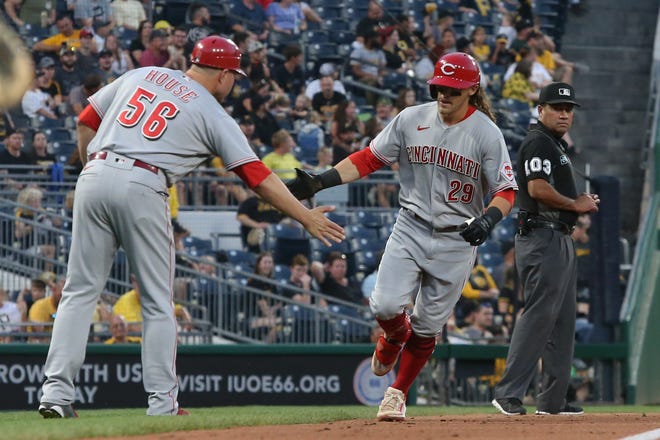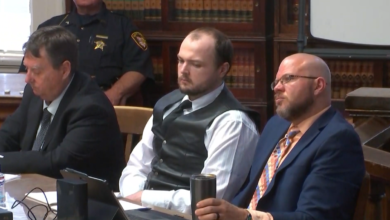
WASHINGTON – The Biden administration has yet to nominate any U.S. ambassadors to overseas posts even though it has nearly 90 vacancies to fill – from geopolitical hot spots in Beijing and Mexico City to plum posts in Rome and London.
The delay comes as the White House weighs how many slots to reserve for deep-pocketed donors and political allies, a controversial but routine practice that critics say could undermine President Joe Biden's promise to restore America's global standing.
"Sending the fashion designers and the movie moguls to London and Berlin and Paris actually is more worrisome and problematic now than it has ever been," said Brett Bruen, a former foreign service office who worked on global engagement in the Obama administration. "Because those are the countries that are doubting … whether or not we are truly going to be a reliable partner.”
The State Department is "paralyzed" by the White House's inaction on naming ambassadors, Bruen said, because Biden aides are still determining how many posts will go to the well-to-do and well-connected.
"The embassies are basically in a holding pattern," he said.
Eric Rubin, a former ambassador to Bulgaria and head of the American Foreign Service Association, which represents the U.S. diplomatic corps, said he is not sure why the White House hasn't given the State Department a greenlight to start filling key positions with career diplomats.
But at this pace, the 87 current ambassadorial vacancies are likely to remain unfilled through the summer, he said, because of the time it takes for candidates to be vetted and confirmed.
The president has so far only appointed Linda Thomas-Greenfield as his ambassador to the United Nations. Cindy McCain, the wife of the late Sen. John McCain, is reportedly being vetted for U.S. ambassador to the UN World Food Programme, based in Rome, according to Politico. McCain would be the Biden administration's first Republican tapped for a Senate-confirmed position.
Asked to confirm McCain's reported nomination, White House press secretary Jen Psaki told reporters Monday it's an ongoing process and the president has not yet made final decisions about nominees for the "vast majority of ambassadorial nominations."
She told reporters last week that "career nominees will probably be in the first slate of nominees for ambassadors."
Fundraisers said while there’s angst among donors vying for plum spots, as is typical of any administration, supporters understand the Biden administration is using the first months in office to confront the coronavirus pandemic that has upended the U.S. economy and American life.
"Biden has appointed a very smart team so far. We're not going to have a diplomatic crisis. There may come a time when things come to a head – while we have our other two big priorities with COVID and the economy – you've got to move faster on some of this," a veteran Democratic fundraiser told USA TODAY on the condition of anonymity given the sensitivity of the subject. "I think that you definitely feel the angst from people who are just trying to move through the personnel process."
In some countries, where the relationship functions well on a practical level and there are no current crises, the impact is not very severe, Rubin said. But in many capitals, extended delays in filling the ambassadorships will be seen as a serious diplomatic snub.
"Much of the world sees it as a sign of disrespect,” Rubin said. "Nobody else leaves ambassadorships vacant – and in this case, we're talking going on three months after the presidential transition.”
He said the failure to name a U.S. ambassador to China is among the most problematic, and not only because of the importance of that increasingly contentious relationship, following an unusually tense meeting in Alaska.
"Given the protocol-conscious and hierarchical-conscious nature of the Chinese government and Chinese system, that means there's really no possibility of dialogue with senior officials in Beijing – unless the president or other top-level officials call directly," he said.
More:'Fundamentally at odds': Blinken, China meeting got heated in Alaska
The White House has not signaled who is in line for the crucial post in Beijing, but media reports have focused on possible political candidates, including Robert Iger, the executive chairman of The Walt Disney Company, and Rahm Emanuel, the hard-charging ex-congressman and former Chicago mayor.
M. Taylor Fravel, an expert on China with MIT's security studies program, said the Biden administration may have good reason to hold off on its ambassadorial nominations, noting the wide range of legislative priorities the White House is juggling. And he noted that America’s embassies are not sitting empty right now – they are staffed with deputy chiefs of mission and other foreign service officials who know how to keep the diplomatic gears turning.
But he agreed Biden should tap diplomatic professionals, not donors or politically wired friends, to lead U.S. embassies – particularly the post in Beijing, which he said should be one of the first ambassadorships filled.
"It's America's most consequential diplomatic relationship at the moment, without a doubt," Fravel said. "If you get China wrong, you get many other things wrong. If you get China right, you solve a lot of other problems."
Rubin and others say they're not opposed to Biden giving some ambassadorships to marquee political names, as long as all nominees are truly qualified and the traditional ratio – of about one-third of ambassadorships going to political nominees and two-thirds going to career nominees – is restored.
The White House is likely to return to the traditional norm of closer to 30% of ambassadorships going to political appointments, according to a White House official who spoke about the president's decision on the condition of anonymity.
During the campaign, Biden said he would base his ambassador picks on their qualifications, not campaign contributions – but he also said there could be top-notch contenders who are also donors.
“I’m going to appoint the best people possible,” Biden said in December 2019. “Nobody, in fact, will be appointed by me based on anything they contributed.”
He made the remarks after one of his primary challengers, Massachusetts Sen. Elizabeth Warren, promised to forgo "the corrupt practice of selling cushy diplomatic posts to wealthy donors."

Warren and other Democrats had excoriated former President Donald Trump for naming more politically connected candidates to diplomatic posts than his predecessors. Nearly two dozen of Trump's nominees had donated to his campaign, underscoring the nature of Trump's transactional diplomacy, according to an analysis by the Center for Responsive Politics, which tracks money in politics. Another 28 of Trump's picks gave either the maximum annual contribution ($33,400) to the Republican National Committee or wrote $100,000 checks to a joint Trump-RNC fundraising committee.
According to the foreign service association's ambassador tracker, 43.5% of Trump's ambassadors were political appointees, compared to 30% for former President Barack Obama's and 31.8% for then-President George W. Bush.
Obama announced three of first nominations in mid-March – Christopher Hill as his nominee to Iraq, Lt. Gen. Karl Eikenberry to Afghanistan and Dan Rooney to Ireland – and did not unveil his next spate of ambassadorships until May.
But unlike Obama, a freshman senator from Illinois before he took office, or Trump, an outsider who rewarded loyalists with cushy posts, Biden's political network spans more than four decades in Washington. The president's personal relationships with members of Congress could complicate his decision on the more coveted posts.
"The field is especially large, there are just so many more people this cycle," the fundraiser said, pointing out that there are some donors who contributed to Hillary Clinton, the 2016 Democratic nominee with a long history of personal ties to donors, and helped fund Biden's bid with the expectation that it would finally pay off.
"So there are those people out there that are afraid – they have worked so hard for years, and thinking, 'I'll get missed,' or 'I'll get missed again," the fundraiser said.
Biden has vowed to rebuild American diplomacy in the wake of Trump's hostility to multilateralism, his withdrawal from major international treaties and his often abrasive treatment of U.S. allies.
The president and Vice President Kamala Harris have spoken by phone to several foreign leaders while Secretary of State Anthony Blinken traveled to Japan and South Korea to shore up support in confronting China before meeting Beijing officials in Alaska. Blinken also hosted Italian Foreign Minister Luigi Di Maio in his first bilateral meeting at the State Department Monday and Biden is slated to welcome Japanese Prime Minister Yoshihide Suga on Friday at the White House
Bruen said Biden is undercutting that promise with the current delays and deliberations over how many ambassadorships to give to campaign donors.
"What's so disingenuous about this ... is that the White House is saying, 'We are going to prioritize the political (appointments),'" while making the career diplomats wait "at the back of the line," he said. As the Biden administration confronts multiple global crises – from the COVID-19 pandemic to climate change – it's vital to send seasoned diplomatic into the field, he added.
"There are good political ambassadors, but they have a steep learning curve," Bruen said. "And it delays the effectiveness of an ambassador when they have to brush up on diplomacy 101, especially now that we face such challenges of credibility and influence and major threats around the world."
Source link








